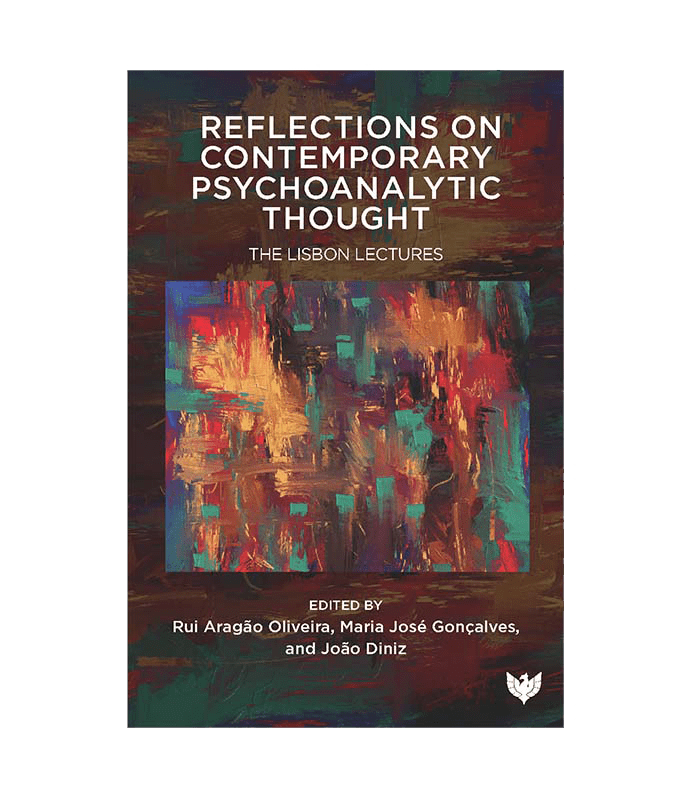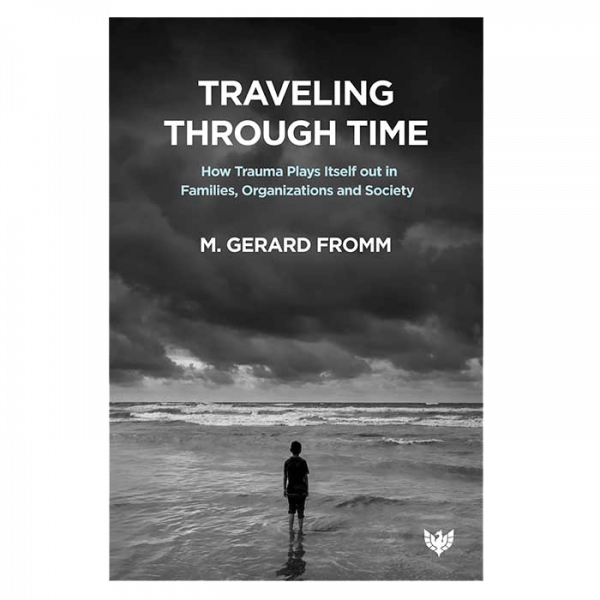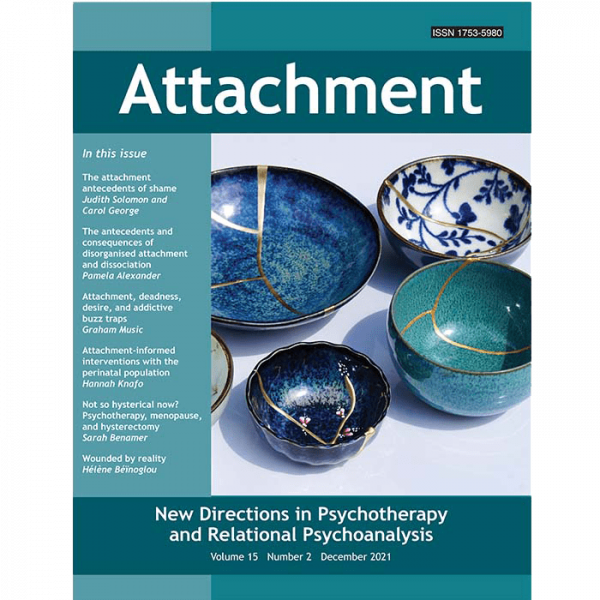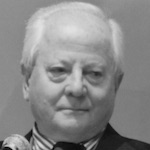Over the past decade, the Portuguese Psychoanalytical Society took the opportunity to restructure and redefine their organisation. As part of this process, they invited outstanding psychoanalysts from all over the world to present their thoughts, reflections, and clinical investigations. These conferences, workshops, and working groups helped shape the modern society, bringing in vibrant new ideas.
Reflections on Contemporary Psychoanalytic Thought showcases the best of these significant contributions with chapters from David Bell, Franco Borgogno, Luis J. Martín Cabré, R. D. Hinshelwood, Howard B. Levine, Andrea Marzi, Sérgio Eduardo Nick, Leopold Nosek, Fernando Orduz, Éric Smadja, and Virginia Ungar. Each chapter begins with an introduction from one of the editors, Rui Aragão Oliveira, Maria José Gonçalves, and João Diniz, which contextualises their impact at the time, the transformations they brought about, and their continuing relevance to the psychoanalytic community. Grouped into two stimulating sections – Psychoanalysis and contemporaneity and Theory of psychoanalytic technique – the book is an absolute must-read for all psychoanalysts and will be of interest to other mental health professionals, students, and anyone interested in engaging with contemporary psychoanalytic concepts.





 Rui Aragão Oliveira is a full member and supervising analyst of the Portuguese Psychoanalytical Society (PPS) and International Psychoanalytical Association. He is the director of the training committee of the PPS, past president of the PPS, past editor-in-chief of the Portuguese Psychoanalytical Review, and past editor of Psychoanalysis Today. He teaches at the Psychoanalytical Institute in Lisbon and has been working with clinical groups for the IPA with the three level model. He has published on the theory of technique, paternal function, and clinical issues.
Rui Aragão Oliveira is a full member and supervising analyst of the Portuguese Psychoanalytical Society (PPS) and International Psychoanalytical Association. He is the director of the training committee of the PPS, past president of the PPS, past editor-in-chief of the Portuguese Psychoanalytical Review, and past editor of Psychoanalysis Today. He teaches at the Psychoanalytical Institute in Lisbon and has been working with clinical groups for the IPA with the three level model. He has published on the theory of technique, paternal function, and clinical issues. Maria José Gonçalves is a medical doctor, child psychiatrist, psychoanalyst, child psychoanalyst, and full member and supervising analyst of the Portuguese Psychoanalytical Society (PPS) and International Psychoanalytical Association (IPA). She is the former president of the PPS Board and Institute Board, and past director of the PPS Training Committee. In the PPS Institute, she promotes the training on psychoanalytic ethics. She was a former director of the Department of Child and Adolescent Psychiatry of the Pediatric Hospital in Lisbon, where she founded a mental health infancy unit. She has published numerous papers, especially on infant psychoanalysis and on clinical issues.
Maria José Gonçalves is a medical doctor, child psychiatrist, psychoanalyst, child psychoanalyst, and full member and supervising analyst of the Portuguese Psychoanalytical Society (PPS) and International Psychoanalytical Association (IPA). She is the former president of the PPS Board and Institute Board, and past director of the PPS Training Committee. In the PPS Institute, she promotes the training on psychoanalytic ethics. She was a former director of the Department of Child and Adolescent Psychiatry of the Pediatric Hospital in Lisbon, where she founded a mental health infancy unit. She has published numerous papers, especially on infant psychoanalysis and on clinical issues. João Seabra Diniz is a full member and supervising analyst of the Portuguese Psychoanalytical Society (PPS) and International Psychoanalytical Association. He started his psychoanalytic training in Italy and continued it in Lisbon at SPP. For many years, he was involved in the formation of candidates for psychoanalysis. He is past president of the SPP and of the Institute of Psychoanalysis of Lisbon/SPP. He is the former director of the Social Action Service at Santa Casa da Misericórdia de Lisboa, and worked in the childhood and youth sector, where he collaborated in the launch of Adoption in Portugal. For some years, he collaborated with the Center for Judicial Studies, training in matters related to the abandonment and adoption of children. He is former national director of the Family and Child Support Project (PAFAC). He was a member of the National Commission for the International Year of the Child.
João Seabra Diniz is a full member and supervising analyst of the Portuguese Psychoanalytical Society (PPS) and International Psychoanalytical Association. He started his psychoanalytic training in Italy and continued it in Lisbon at SPP. For many years, he was involved in the formation of candidates for psychoanalysis. He is past president of the SPP and of the Institute of Psychoanalysis of Lisbon/SPP. He is the former director of the Social Action Service at Santa Casa da Misericórdia de Lisboa, and worked in the childhood and youth sector, where he collaborated in the launch of Adoption in Portugal. For some years, he collaborated with the Center for Judicial Studies, training in matters related to the abandonment and adoption of children. He is former national director of the Family and Child Support Project (PAFAC). He was a member of the National Commission for the International Year of the Child.
William Glover, President, American Psychoanalytic Association –
‘This collection of lectures presented to the Portuguese Psychoanalytic Society contains some of the best psychoanalytic papers of the past decade. The editors contextualize the relevance of international psychoanalytic thought to the development of their society. It is an exemplary case study of how an institution benefits from participation in global psychoanalytic exchanges.’
Jan Abram, training and supervising analyst (British Psychoanalytical Society), author of ‘The Surviving Object: Clinical Essays on Psychic Survival-of-the-object’ –
‘This book is a refreshing reminder of the history and contemporary values of clinical psychoanalysis. congratulations to the Portuguese editors who have created a very readable collection of inspiring chapters that span a truly international heritage. The two chapters on Ferenczi’s work, especially, illuminate how Lisbon analysts do not forget this much-neglected author but rather celebrate the humanity of his particular contribution to psychoanalysis. I strongly recommend this slim but mind-expanding volume and hope we see more collections of this kind from Lisbon in the future.’
Stefano Bolognini, past President of the Italian Psychoanalytic Society and of the International Psychoanalytical Association –
‘On the shore of the ocean of the unconscious, once again Lisbon is confirmed as an ideal starting port for adventurous exploration – in this case, scientific exploration – thanks to the confluence and thoughtful contribution of masters of psychoanalysis from all parts of the world. The Lisbon lectures, organised by the Portuguese Psychoanalytical Society, have a truly wide, intercontinental cultural scope, and the reader will find some impressive essays to fascinate both professionals and laypeople interested in the developments of contemporary humanity.’
Marilia Aisenstein, training and supervising analyst in the Hellenic Psychoanalytical Society and the Paris Psychoanalytical Society, and past President of the Paris Psychoanalytical Society –
‘Reflections on Contemporary Psychoanalytic Thought is an impressive book, which describes the psychoanalytic landscape of both theory and technique. It opens on a remarkable paper by R. D. Hinshelwood and includes contributions from many other eminent psychoanalysts. Each chapter is introduced by one of the editors, contextualising the way the lecture was received and the transformations it promoted in the community of Portuguese psychoanalysts.’